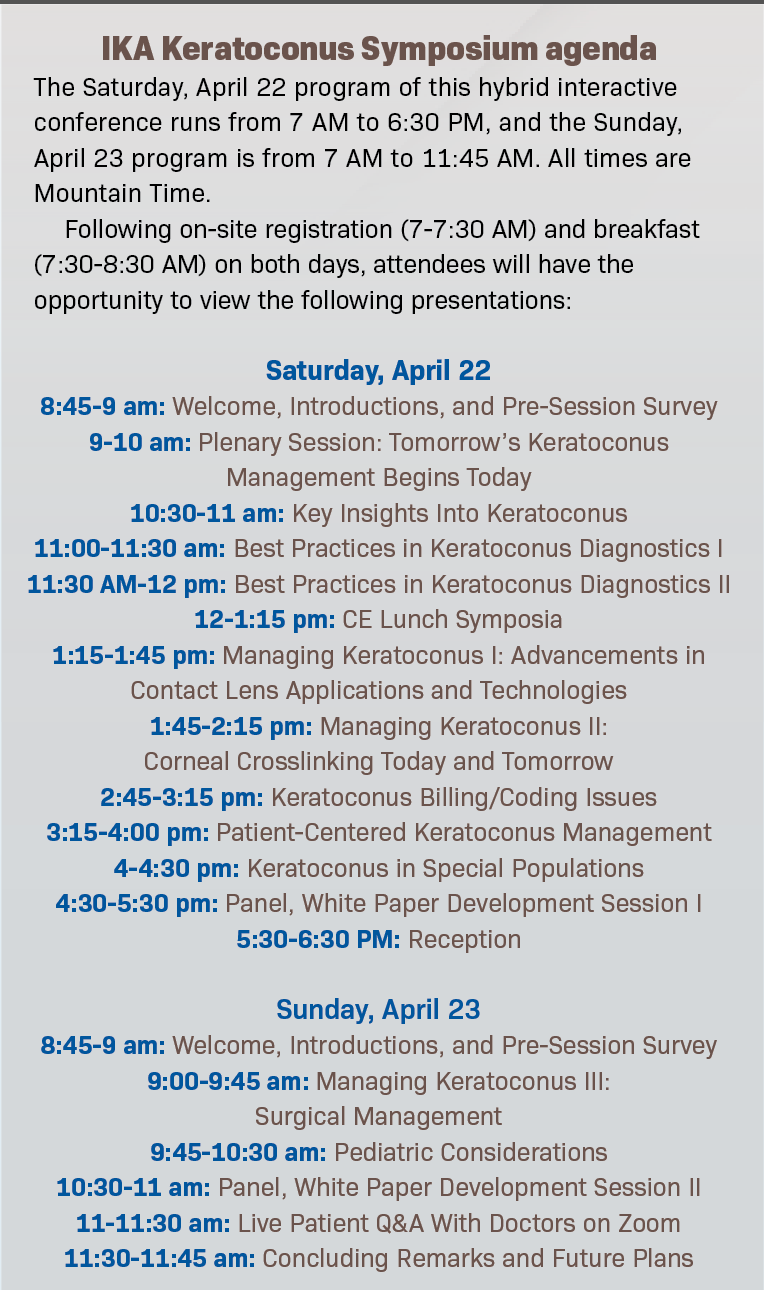IKA Keratoconus Symposium 2023: Front to back and everything in between
Conference aims to promote professional education and scientific development in corneal ectasias.

The 1st Annual International Keratoconus Academy (IKA) of Eye Care Professionals Keratoconus Symposium will take place April 22-23, 2023, at the Scottsdale Marriott at McDowell Mountains in Scottsdale, Arizona.
This new hybrid, interactive conference for optometrists, ophthalmologists, and other eye care professionals involved in keratoconus management will promote ongoing professional education and scientific development in keratoconus and other forms of corneal ectasia. The topics covered will include using new diagnostic technologies, maximizing keratoconus management in clinical practice, and amplifying clinician voices on keratoconus best practices.
The cochairs of the event are IKA CEO and cofounder S. Barry Eiden, OD, FAAO, FSLS, North Suburban Vision Consultants, Deerfield, Illinois; IKA president and cofounder Andrew S. Morgenstern, OD, FAAO, FNAP, Walter Reed National Military Medical Center, Bethesda, Maryland; and IKA executive board member Elizabeth Yeu, MD, Virginia Eye Consultants, Norfolk.
“The 1st annual IKA Keratoconus Symposium will be [a gathering] of some of the greatest minds in the field of keratoconus who will share their extensive knowledge and experience regarding the most current information available and their visions toward the future,” Eiden commented.
Registration is free for students, residents, fellows, active duty service members, and veterans.
Conference vision
Managing patients with keratoconus can be challenging, but research in the field is rapidly bringing more opportunities for improved outcomes into eye care clinics. Marked by thinning and bulging of the cornea, keratoconus can lead to severe blurriness and visual distortions, making early diagnosis crucial for appropriate management.

At this inaugural meeting, renowned experts will share insights to help community clinicians improve their use of diagnostic tools and treatment strategies for their patients across the spectrum of keratoconus severity, according to the organizers.
Following attendance at the conference, participants will be able to:
» Create strategies to accurately diagnose patients and classify their severity of keratoconus;
» Explain the safety and efficacy data supporting currently available keratoconus therapies;
» Evaluate clinical trial data for treatments being investigated for the management of keratoconus; and
» Describe optimal approaches to patient-centered keratoconus care that incorporate their individual characteristics and goals.
Newsletter
Want more insights like this? Subscribe to Optometry Times and get clinical pearls and practice tips delivered straight to your inbox.